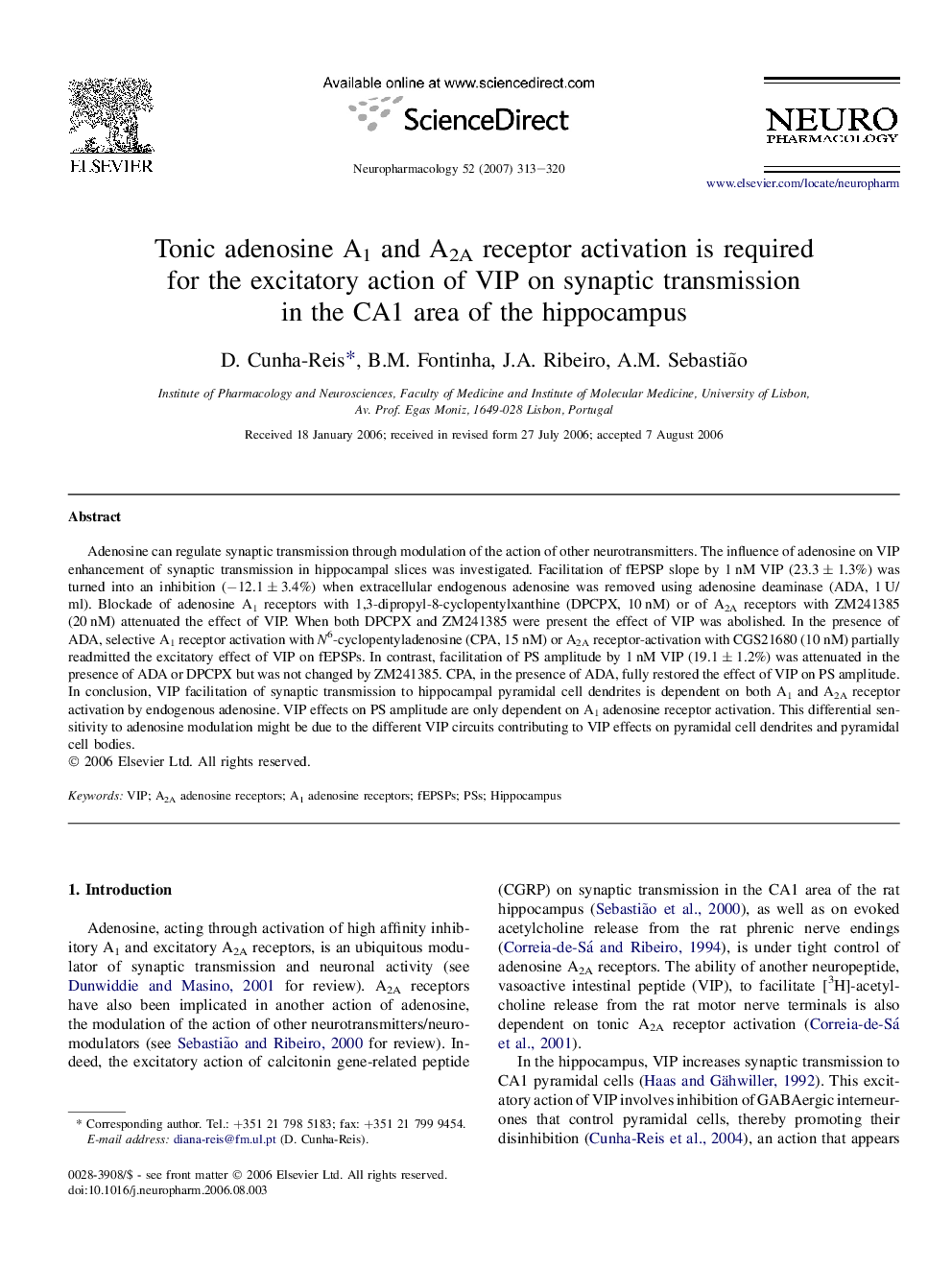| Article ID | Journal | Published Year | Pages | File Type |
|---|---|---|---|---|
| 2494796 | Neuropharmacology | 2007 | 8 Pages |
Adenosine can regulate synaptic transmission through modulation of the action of other neurotransmitters. The influence of adenosine on VIP enhancement of synaptic transmission in hippocampal slices was investigated. Facilitation of fEPSP slope by 1 nM VIP (23.3 ± 1.3%) was turned into an inhibition (−12.1 ± 3.4%) when extracellular endogenous adenosine was removed using adenosine deaminase (ADA, 1 U/ml). Blockade of adenosine A1 receptors with 1,3-dipropyl-8-cyclopentylxanthine (DPCPX, 10 nM) or of A2A receptors with ZM241385 (20 nM) attenuated the effect of VIP. When both DPCPX and ZM241385 were present the effect of VIP was abolished. In the presence of ADA, selective A1 receptor activation with N6-cyclopentyladenosine (CPA, 15 nM) or A2A receptor-activation with CGS21680 (10 nM) partially readmitted the excitatory effect of VIP on fEPSPs. In contrast, facilitation of PS amplitude by 1 nM VIP (19.1 ± 1.2%) was attenuated in the presence of ADA or DPCPX but was not changed by ZM241385. CPA, in the presence of ADA, fully restored the effect of VIP on PS amplitude. In conclusion, VIP facilitation of synaptic transmission to hippocampal pyramidal cell dendrites is dependent on both A1 and A2A receptor activation by endogenous adenosine. VIP effects on PS amplitude are only dependent on A1 adenosine receptor activation. This differential sensitivity to adenosine modulation might be due to the different VIP circuits contributing to VIP effects on pyramidal cell dendrites and pyramidal cell bodies.
